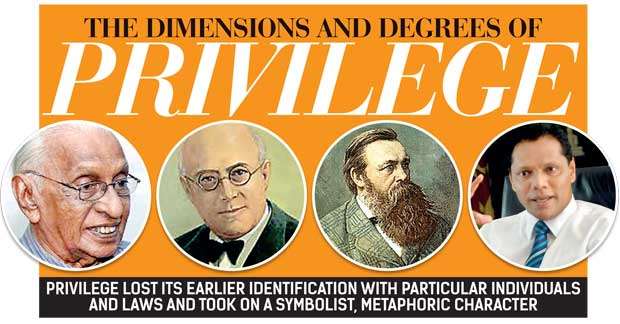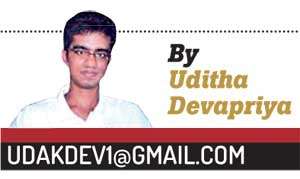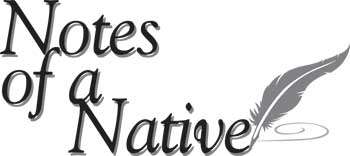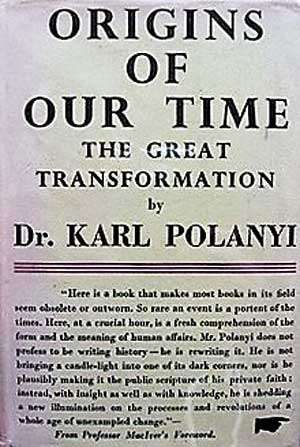Reply To:
Name - Reply Comment
Last Updated : 2024-04-19 00:03:00

Later, when the English pioneered a new legal system with an emphasis on the parliament and individual rights, privileges were stringently defined in terms of institutions, not individuals. Powers which accrued to persons were thus never, theoretically at least, the prerogative of those persons, but rather of the institutions which they represented. Even the Royal Prerogative, more symbolic than practical today, was meant to symbolise the overarching presence of the monarchy, and not the monarch. In other words, privilege lost its earlier identification with particular individuals and laws and took on a symbolist, metaphoric character.
Privilege, then, is best understood today as an abstraction, and is best seen in relation to abstractions. It is relative. Malleable. What is a birthright to some is an absolute right to others. What the few possess, the many do not. What the many rebel for, the few have. In a world where no one can have everything and where  nothing can be in the hands of everyone, it is natural that conflicts arise when people are defined in relation to what Karl Polanyi once memorably referred to as fictitious commodities. In the Augustine and post-Augustine world, long before the advent of industrialisation, people were essentially either chattels or owners, either serfs or landlords. As such, it was not difficult to define a privilege in absolute, concrete terms. When the bond between serf and landlord broke down and industrial capitalism took over the reins of Western civilization, the most immediate consequence was the substitution of capital interests for land. In his introduction to The Condition of the Working Class in England, Friedrich Engels brilliantly captures this transition from the manor to the market. Once the transition was over, privilege became an obscure, pliable yardstick. Societies once colonised by the West have historically been worse off than the rest of the world when it comes to the rift between the many and the few, for two obvious reasons: they were effectively robbed of the resources and the industries they had, and they were ruled on the basis of the continuation of pre-existing social gulfs. What little remained was then siphoned off to those powerful aristocracies which could be counted on to support the coloniser, even at the cost of the enslaved. In colonial societies, these resources thus became the ultimate symbols of privilege, and they were used to create an entire social milieu which thrived on a bourgeois, caste-run and quasi-feudal worldview. Sri Lanka was no stranger to this process of economic imperialism, which passed through two distinct but still related epochs: that of the landowning traditional elite and that of the arrack renting capitalist bourgeoisie.
nothing can be in the hands of everyone, it is natural that conflicts arise when people are defined in relation to what Karl Polanyi once memorably referred to as fictitious commodities. In the Augustine and post-Augustine world, long before the advent of industrialisation, people were essentially either chattels or owners, either serfs or landlords. As such, it was not difficult to define a privilege in absolute, concrete terms. When the bond between serf and landlord broke down and industrial capitalism took over the reins of Western civilization, the most immediate consequence was the substitution of capital interests for land. In his introduction to The Condition of the Working Class in England, Friedrich Engels brilliantly captures this transition from the manor to the market. Once the transition was over, privilege became an obscure, pliable yardstick. Societies once colonised by the West have historically been worse off than the rest of the world when it comes to the rift between the many and the few, for two obvious reasons: they were effectively robbed of the resources and the industries they had, and they were ruled on the basis of the continuation of pre-existing social gulfs. What little remained was then siphoned off to those powerful aristocracies which could be counted on to support the coloniser, even at the cost of the enslaved. In colonial societies, these resources thus became the ultimate symbols of privilege, and they were used to create an entire social milieu which thrived on a bourgeois, caste-run and quasi-feudal worldview. Sri Lanka was no stranger to this process of economic imperialism, which passed through two distinct but still related epochs: that of the landowning traditional elite and that of the arrack renting capitalist bourgeoisie.
"Societies once colonised by the West have historically been worse off than the rest of the world when it comes to the rift between the many and the few, for two obvious reasons: they were effectively robbed of the resources they had and ruled on the basis of the continuation of pre-existing social gulfs"
 What happened when the white man left? He left behind a society which distinguished the majority from the minority. Western liberalism is strange and paradoxical in that it champions democracy and individual rights, and yet rejects both. The reason is clear. From Rousseau to Locke, liberalism was premised on the separation of the multitude, who cannot be trusted, from the minority, the elite, who can be. (My friend Krisantha: “They say they’re for democracy AND insist that the majority are backward!”) It is this idea of individual rights, a creature of capitalism, which found its way to colonial societies, and which continues to define the parameters of privilege in those societies: privilege that comes in different shades, colours, and hues.
What happened when the white man left? He left behind a society which distinguished the majority from the minority. Western liberalism is strange and paradoxical in that it champions democracy and individual rights, and yet rejects both. The reason is clear. From Rousseau to Locke, liberalism was premised on the separation of the multitude, who cannot be trusted, from the minority, the elite, who can be. (My friend Krisantha: “They say they’re for democracy AND insist that the majority are backward!”) It is this idea of individual rights, a creature of capitalism, which found its way to colonial societies, and which continues to define the parameters of privilege in those societies: privilege that comes in different shades, colours, and hues.
For this reason, Western capitalism, with its intrinsic distrust of the majority, and its deification of the minority, turned it into an abstraction. Feudal societies had defined it clearly, in terms of land relations. Capitalist societies or societies half-rooted in capitalism (like ours), perhaps because of the ambivalent nature of Western liberalism, could not define it clearly.
We find privilege in almost every corner. Those who have money, those who can speak, read, and write in English, those who are in politics, those who are supporters of politicians, and those who grab the opportune moment and join politicians on their way to the top are, in societies like ours, in a class of their own. They are  privileged and they define their privileged status in relation to everyone else around them.
privileged and they define their privileged status in relation to everyone else around them.
When Dayasiri Jayasekara made that infamous gaffe trying to pronounce a Latin saying (the motto of a school) last year, he was castigated in every quarter. When no less a person than our president made gaffe after gaffe giving a speech in English, he was rounded up and rebuked. So strange were the notions entertained of goodness and badness in speaking a different language in each case that no one batted as much as an eyelid when representatives of a mainly Sinhalese and Tamil society made gaffe after gaffe in the mother tongue (especially Sinhala) in the parliament. I can mention at least five names from the ruling parties who muddle up Sinhala in ways which would make even the most ordinary speaker blush. And yet, as a friend once told me, we are content in letting these politicos off the hook because we don’t care about what makes us who we are. We are more concerned with how we pronounce another language. When residents of a given society judge one another based on a language or a marker of privilege created in another society, what does that say about those residents? It says a lot, I should think, and it makes evident the flawed premises and assumptions on which such societies (are) run. That is why I am confused why parents insist on their children learning how to speak English rather than how to read and write it effectively. When elocution is privileged over literature and grammar, how can a nation turn out writers, artists, or even intellectuals? Is this not one reason why we haven’t been able to produce an original thinker in English, an observation which Liyanage Amarakeerthi made years ago in an article on Gunadasa Amarasekara? Politicians love to talk about ape kama, or our way, forgetting that ape kama is much more than political rhetoric. It all starts with the way we look at our compatriots.
Privilege in a society like ours, naturally, is borne of ignorance. Ignorance, that is, of what entails privilege and what makes up a person of high renown. The political sphere that January the 8th, 2015, brought forth was birthed by assumptions about intelligence and prestige which have since been proven to be patently false. If English speaking technocrats, as opposed to village baiyas, could make this society better than what it was, 2015 and 2016 were let-down years which proved that this was nothing more than a myth. The elitism associated with the party of the young, the UNP, was in that sense a fluke. It was good advertising, and like all good advertising, the myths it perpetuated are still being sustained by a good (great?) proportion of the population.
"When residents of a given society judge one another based on a language or a marker of privilege created in another society, what does that say about those residents"
How many of those who mocked Dayasiri Jayasekara can spell their names and write essays in Latin? (Let’s be more precise here: how many of those not-so “old” boys who castigated the man on social media can read a sentence in Latin?) How many of those who took Maithripala Sirisena to task over his speeches can write a proper essay in English (as opposed to the clichéd-ridden tommy-rot you come across in newspapers and journals every day)? My guess is, not many. That is why privilege, so often a marker of distinction in the world, has been a product of centuries of exploitation, misery, oppression, and ignorance in societies like ours that are still emerging from colonialism. It was this sort of ignorance which made critics of the former regime rationalise their dislike of the Rajapaksas in terms of their preference for political elites conversant in Western habits. The colonial hangover, which has been written on and dissected at length by critics more scholarly than me, remains an everlasting symbol of pride for the few, and sadness for the many, here. There are, the way I see it, two ways of combating the feelings of inadequacy and inferiority this compels.
The first is by turning those feelings into an instrument of self-pity, by joining the crowd and bringing down others on their “way up” on the basis of their inadequacies in those aforementioned criteria of privilege. This is what most revolutionaries do, and what the ruckus over private education has turned out to be.
The second, the method I prefer, is to turn those tools of oppression into tools of empowerment. Somewhere in the 1970s a man called Douglas Walatara pioneered a method of teaching English which even those with a smattering of knowledge in the language could access in the remotest schools. It is this method that, in later decades, was contorted and turned into what is referred to as English Our Way. Forget that, though. The point is, we can either be revolutionaries or be another Douglas Walatara. My choice, the only one that would make sense, is to be the latter. That is one way, if not the only way, through which privilege can be, if not completely combated, then at least partly ameliorated.

Add comment
Comments will be edited (grammar, spelling and slang) and authorized at the discretion of Daily Mirror online. The website also has the right not to publish selected comments.
Reply To:
Name - Reply Comment
On March 26, a couple arriving from Thailand was arrested with 88 live animal
According to villagers from Naula-Moragolla out of 105 families 80 can afford
Is the situation in Sri Lanka so grim that locals harbour hope that they coul
A recent post on social media revealed that three purple-faced langurs near t

10 Apr 2024
09 Apr 2024